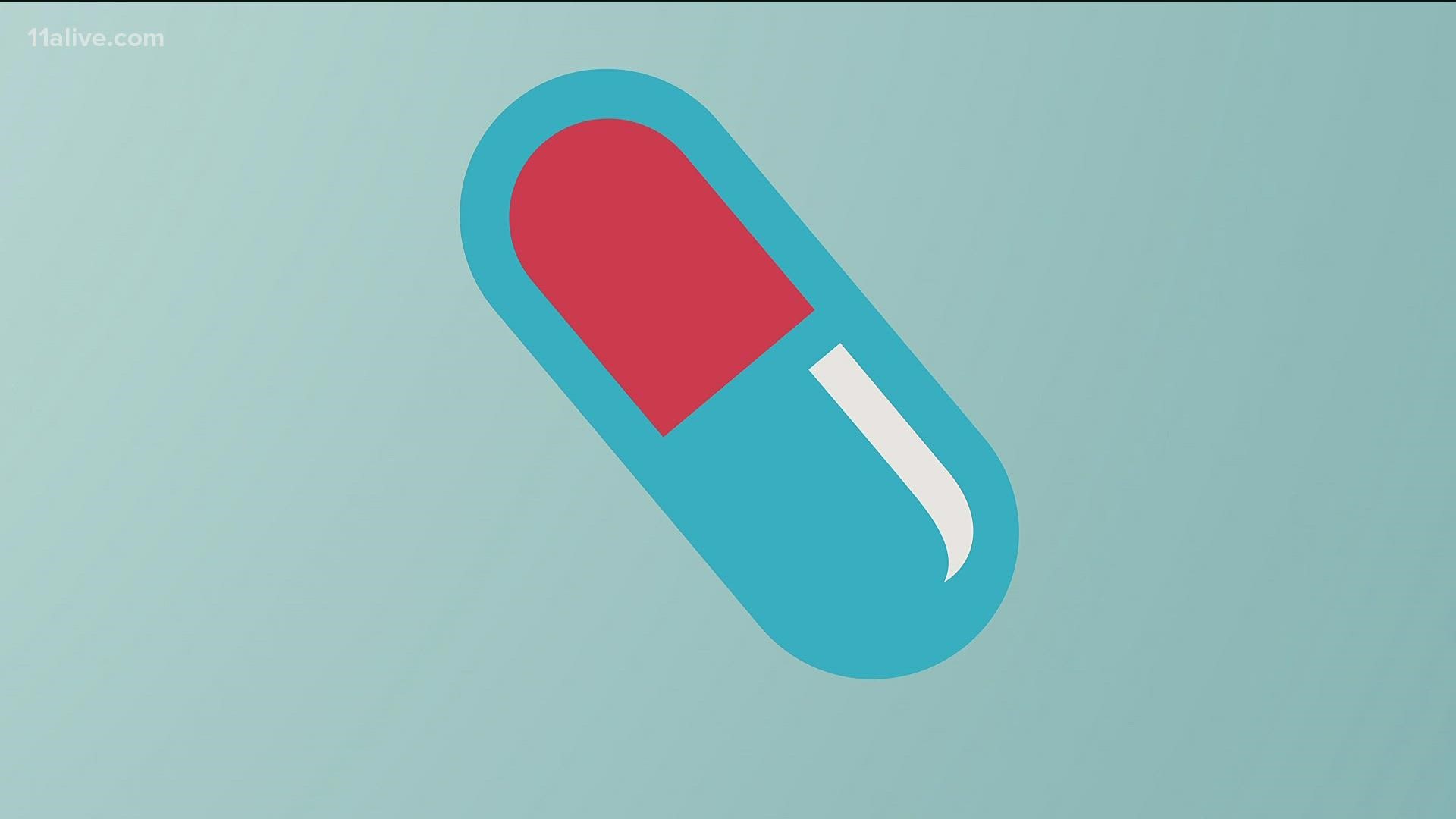ATLANTA — After Pfizer said they were testing a pill that could help ward off COVID-19, many questions were surrounding the drugmaker's announcement.
If successful and approved for use, the pill would combine two drugs, be available for people at least 18 years old, and could be prescribed "at the first sign of infection, without requiring that patients are hospitalized or in critical care."
11Alive's medical expert, Dr. Sujatha Reddy, put it quite simply, stating the possible pill reminds her of another kind of treatment.
"This treatment sounds very much like Tamiflu, which people may have heard of. We give that to people exposed to the flu or early on in their diagnosis to keep them from getting very sick. So, this reminds me of that for coronavirus," she said.
Like Tamiflu, which is different from the flu shot, the COVID-19 pill would not be a substitute for the vaccine.
"This antiviral medicine that Pfizer is testing should help people that may be living in a home with someone who has coronavirus, or have been exposed to coronavirus. It should prevent them from getting a very bad infection because these medicines keep the coronavirus from duplicating itself," Reddy said.
To keep the virus from duplicating, Reddy explained Pfizer is testing a cocktail of drug therapies.
"Pfizer is testing the coronavirus antiviral with another protease inhibitor called ritonavir. And the idea here is the ritonavir will keep the virus from essentially digesting the coronavirus antiviral. So, you'll keep the level of the coronavirus drug high enough to continue to keep the infection at bay or fight the infection. By using the two drugs together, you may get a better result," she said.
While some people on social media claim the drug is essentially ivermectin repackaged, Reddy explained the two are not at all the same.
"Ivermectin is an anti-parasite offered to treat worms. That is a different mechanism of action than an antiviral. And one of the key things is here we're having a study that's being done by a very good pharmaceutical company on humans. It's being studied versus you know, what people are doing with ivermectin which has not been studied for coronavirus in humans at all."
In the end, if the drug works and is approved, Reddy said it could be helpful, especially for people who refuse to get the vaccine.
"The more tools, the more medicines, the more things we have to fight this, the better our lives are going to be. Vaccination right now is still the main thing we have, but more medications like this could be offered after someone's been exposed. It could keep them from getting very sick. I think it's great news that we're seeing that there's medication out there being tested," she added.
Pfizer is also studying its potential treatment in people who are already infected with the virus. The drugmaker expects results from those studies by the end of 2021.

